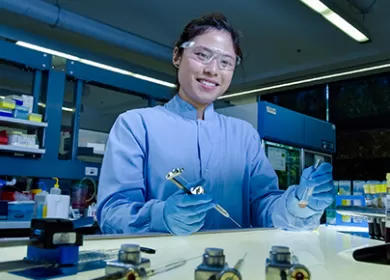Don’t have an account?
Select the donation type you’d like to make
What would it take to get you to donate blood regularly?
Donated blood can save the lives of people who need transfusions or medications made from blood, but blood donation centres globally face frequent blood shortages.
Blood donation rates remain between 3% and 4% in many countries, including here in Australia, and globally the demand for plasma is at an all-time high.
One of the easiest ways to help meet demand is to encourage those who already donate to give blood more often. But what would it take to encourage regular blood donation?
Why don’t we pay donors?
Some countries pay donors, which might seem like an obvious solution. Australia’s blood donation system is built on a spirit of volunteerism, and international research suggests that payments could crowd out the altruistic donors that underpin our system.
Unlike countries that pay for donation, cash incentives are generally viewed negatively by most donors in countries where voluntary systems are in place.
Our research found almost 90% of Australian blood donors endorse impure altruism, which means that while they are donating blood to help others, they enjoy the feeling of doing good.
Based on research evidence so far, we believe that cash payment for blood donation in Australia risks undermining this altruistic identity of our donors by reducing the “warm glow” of doing something good for someone else. However, our research has shown that extra recognition in the form of gifts, offered as a choice with blood donation, do not conflict with altruistic blood donor identities, and may be a way forward to encouraging higher frequency donation.
Evidence regarding the efficacy of gifts and rewards is limited but growing. We have found the idea has high acceptance amongst Australian blood donors, with 70% supportive of increased donor recognition.
Is there an impact on blood safety?
Traditionally, blood services have shied away from offering gifts to donate, with the World Health Organization recommending a voluntary system to protect blood safety. The idea being, they could attract at-risk donors.
Our review of international research and experience so far has found that branded gifts do not negatively affect blood safety. There is mixed evidence for cash payments.
What do donors think about gifts and recognition?
Our survey showed that most Australian blood donors are accepting of gifts and being recognised for donating blood. 40-60% believed that branded gifts and loyalty programs would encourage donations, and would view Lifeblood more positively if introduced.
Donors would be more accepting of these strategies when the benefits (such as increasing donations and awareness of blood donation in the community) outweigh the costs.
And encouragingly, we found offering a gift after donating can bring donors back sooner. This was not dependent on accepting the gift, providing evidence of a bolstered acknowledgement effect.
What gifts should we offer?
We found in our survey of donors, and looking at international research, that no one gift would please everyone, and giving donors a choice would allow the donor to feel in control and motivated to receive something they want (rather than being given something they don't want).
What next for Lifeblood?
Australia has one of the strongest voluntary donation systems in the world, but the challenge for us is boosting regular donations. Most (62%) blood donors only give one or two donations a year, and 40% of our first-time donors never return.
Could 'thank-you gifts’ be effective in addressing this imbalance?
A new gifts trial being launched today by Australian Red Cross Lifeblood aims to find that out. From today, all Australian blood donors can take part in the trial to receive Lifeblood branded merchandise, including t-shirts, mugs, and socks, when they reach donation goals.
This trial will help determine if tokens of thanks can really bring blood donors through the door more regularly, and which donors are most likely to respond.



